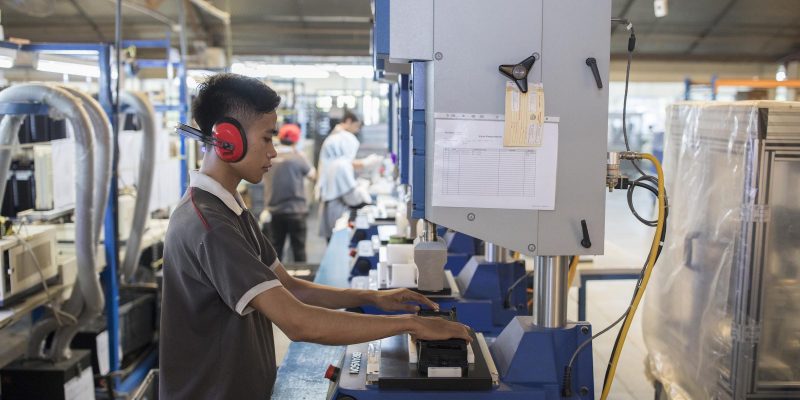
The compact was situated in an already crowded field of donor assistance in Indonesia. Therefore, it was important to select sectors with demonstration effects for the GOI, allowing them to use the MCC model to approach development challenges in new ways and to design projects that were scalable. In doing so, MCC and the GOI had opportunities to work with other development partners to build upon their knowledge and expertise, particularly in the Nutrition Project, which worked with UNICEF, the World Bank, and Australia's Department of Foreign Affairs and Trade (DFAT) through a multi-donor funding mechanism which supported the GOI-implemented Generasi Project.
- Eleven major industry players in sustainable cocoa active in Indonesia, including multinational companies such Cargill, Mars, Mondalez, Nestle, Olam and others, co-financed projects and partnerships with cocoa producers that will continue after the end of the compact.
- The World Wildlife Fund (WWF) Rimba Corridor Green Growth Demonstration Project matched MCC's $5 million to co-finance a $10 million demonstration project designed to identify and demonstrate green development opportunities in three geographic areas of a high conservation corridor in Sumatra. This partnership targeted the coffee sector and prioritized identifying and supporting development of direct partnerships in the coffee supply chain.
- The Norwegian and Dutch governments, along with a local service provider, contributed $3.2 million in co-financing to scale up and expand installation and leasing of solar photovoltaic systems in households, schools, and kiosks. Projects supported the development of Renewable Energy Service Centers to address sustainability. These partnerships were expected to continue after the end of the compact.[[MCC is waiting for information from the Government of Indonesia to verify this statement.]]
- MCC collaborated with Musim Mas and the International Finance Corporation (IFC) to train 4,700 smallholder palm oil farmers in improved production practices and preparation for eventual sustainability certification. MCC provided $2.6 million in grant funding that leveraged an additional $1.9 million from Musim Mas. This project was part of a larger $10 million IFC effort to support independent palm oil smallholders in Jambi, Riau and North Sumatra provinces focusing on sustainability certification, environmental protection, access to finance, and traceability.
Partnership grants within the GPF were structured to ensure that partners continue the work with their own funding beyond the compact term. Similarly, on-grid renewable energy projects were structured with private finance provided by project sponsors to be used after the compact end to move projects to their commercial operations date. Overall, the GPF leveraged an estimated $35 million of private sector funding.
A major success was signing and implementing memorandums of understanding and agreement with MOWECP and IWAPI for promoting women's economic empowerment approaches and lessons within government, and private sector planning and programs, respectively. IWAPI organized events with buyers and corporations for women entrepreneurs, helping them access national and global markets for selling their products. IWAPI also supported women vendors training and uploaded all training materials on their website to support the continuous online training of women vendors.

